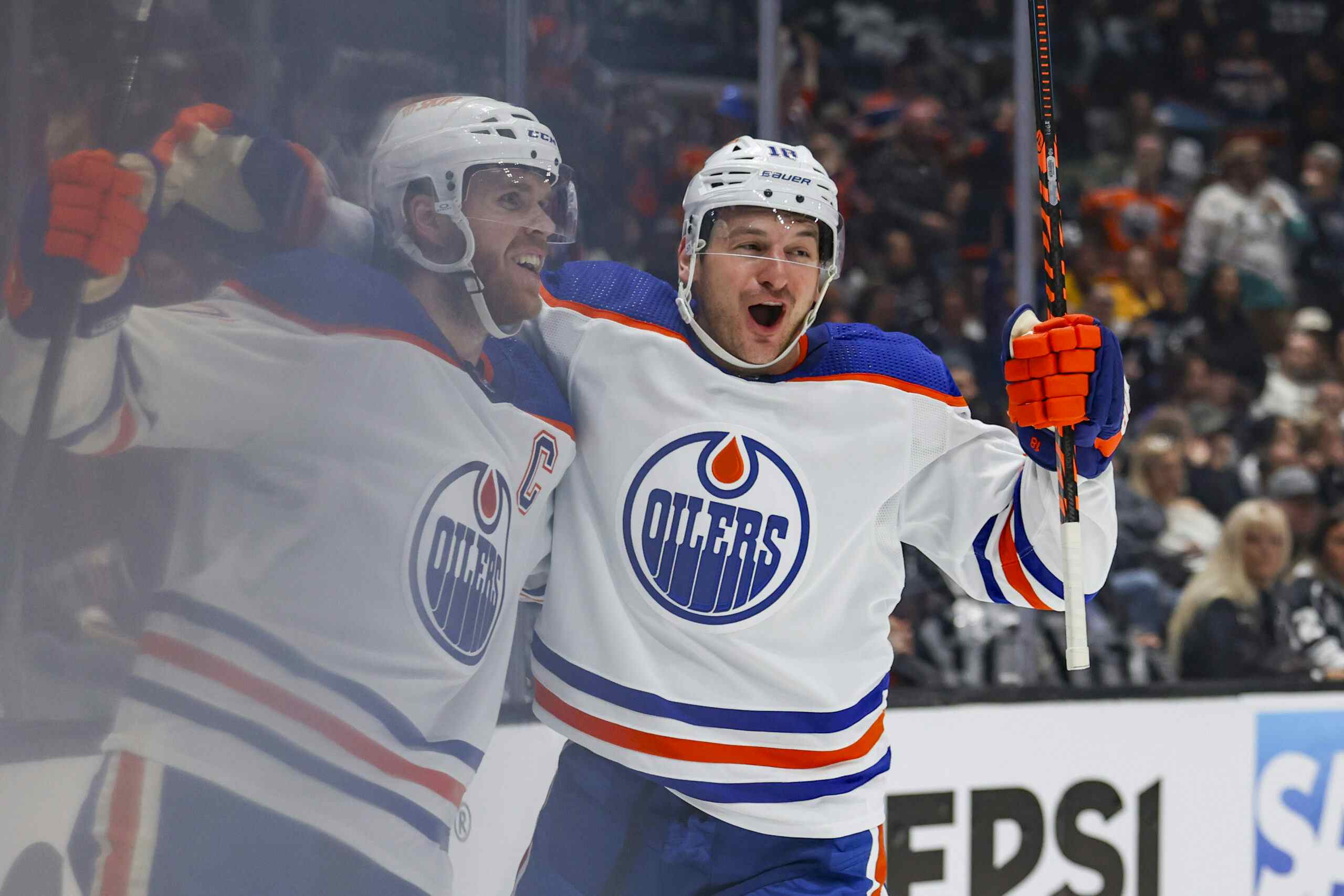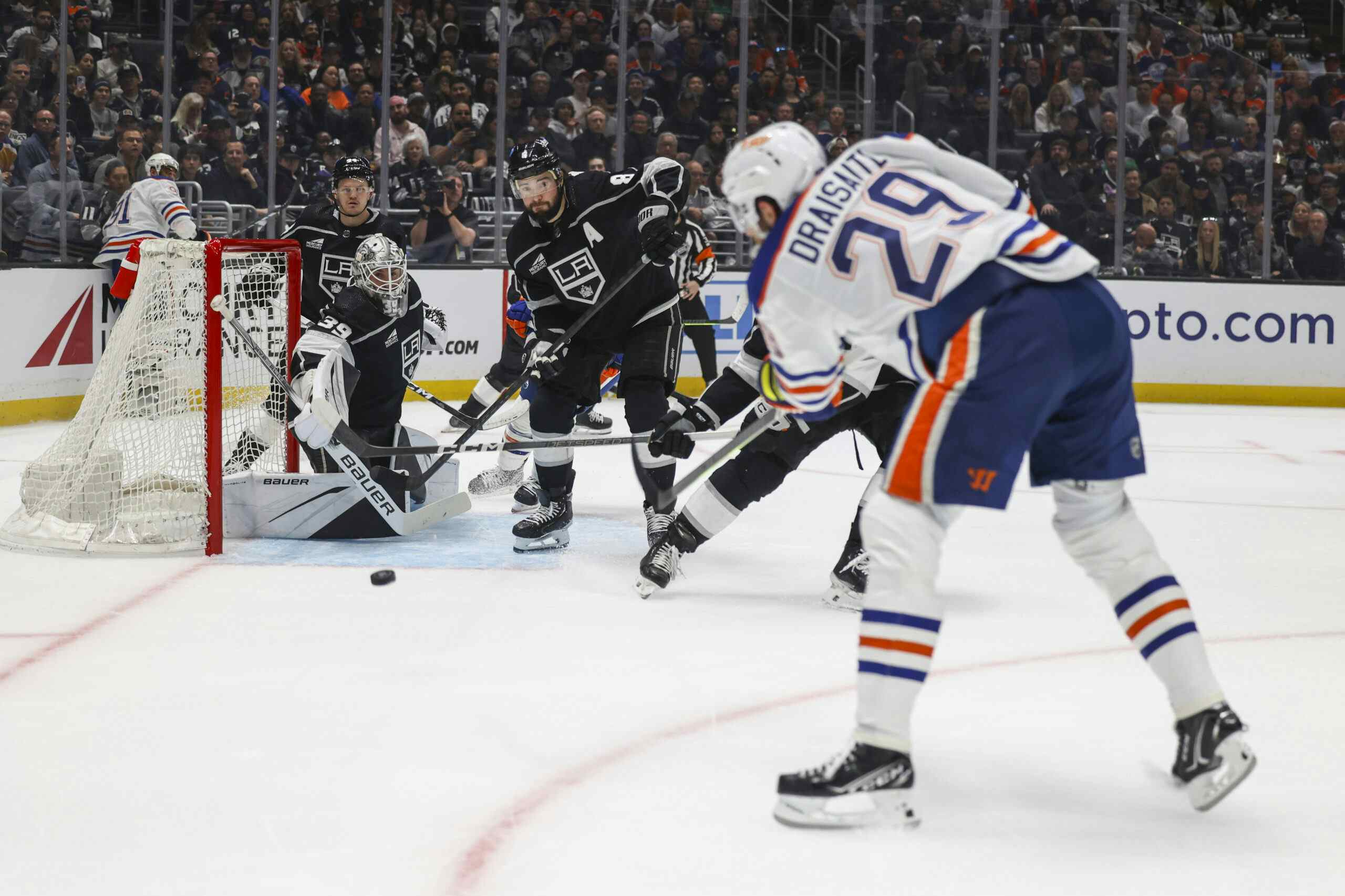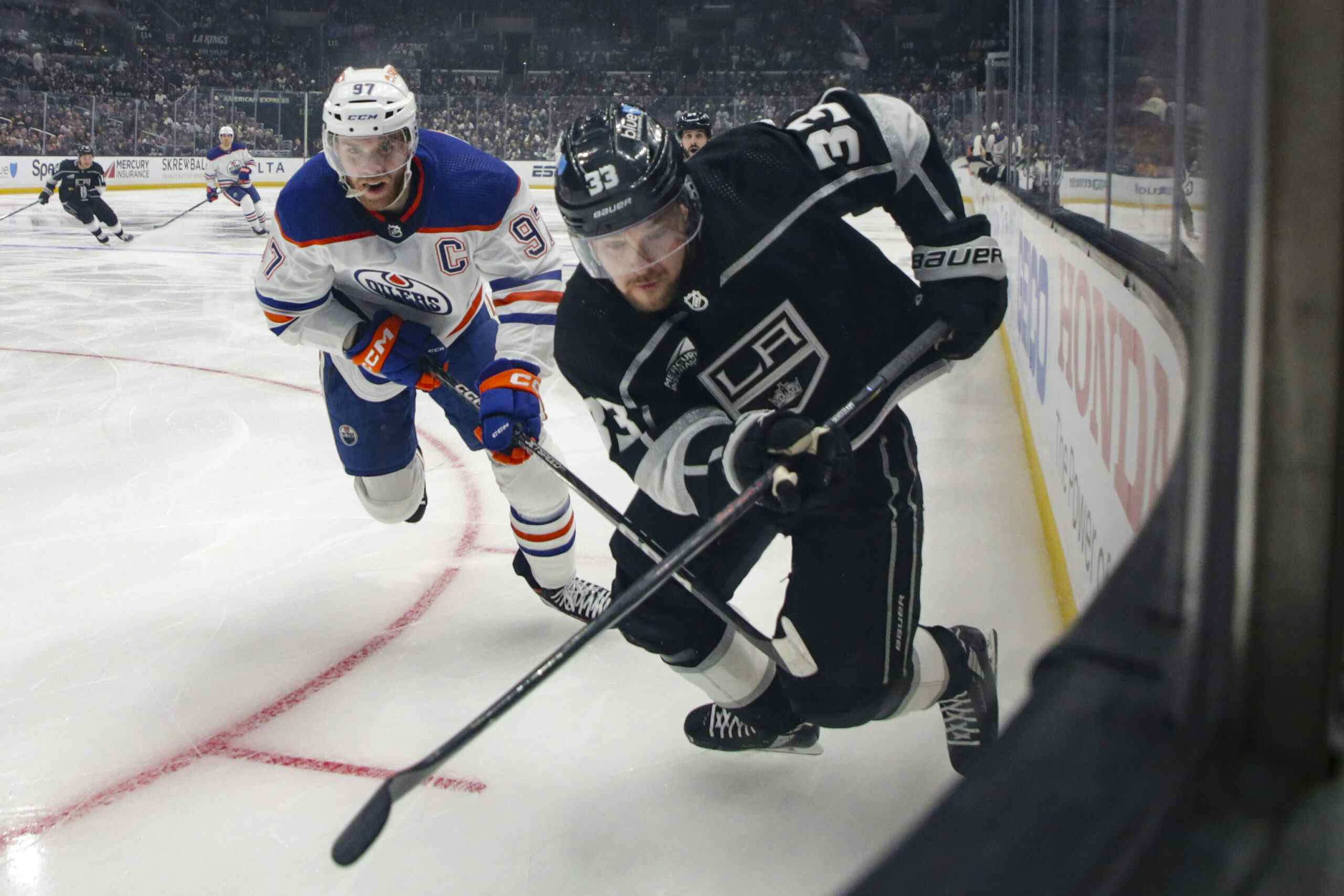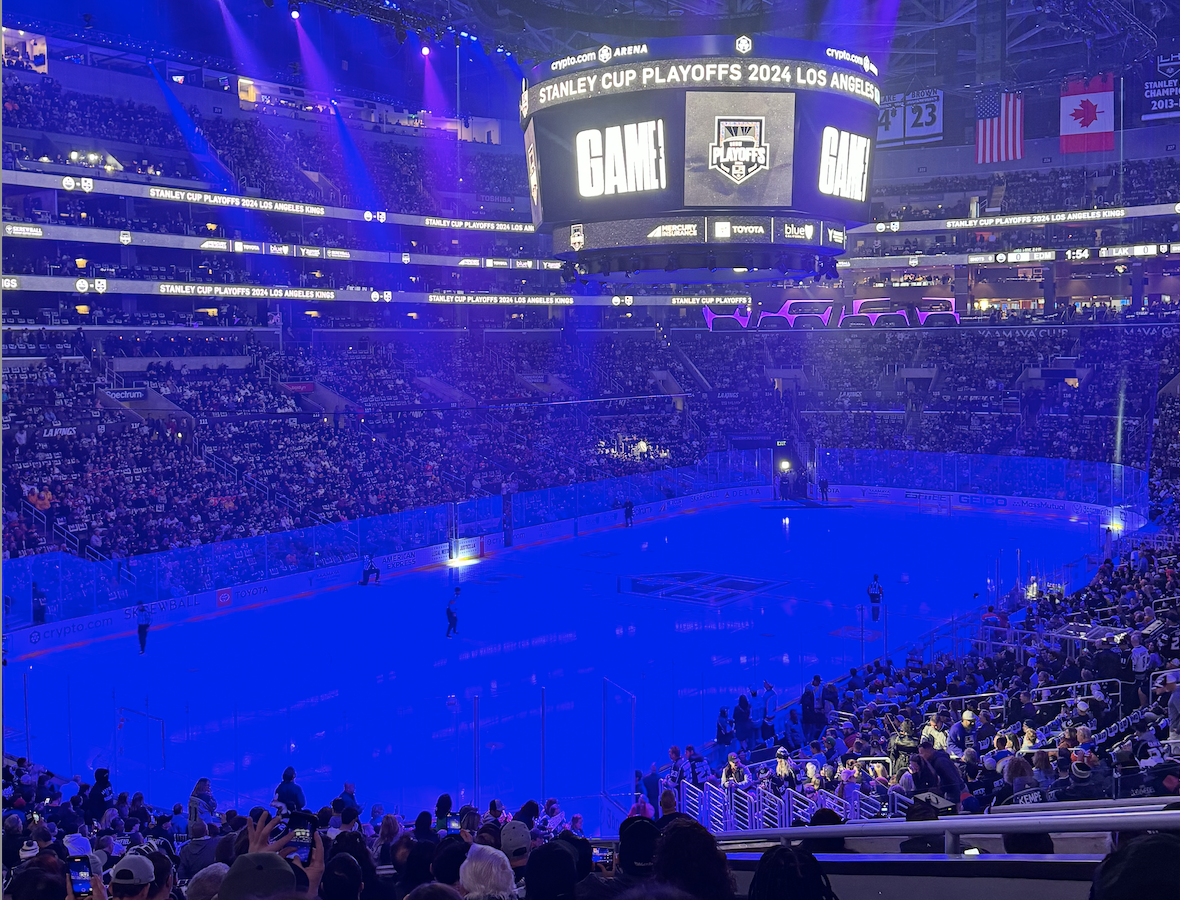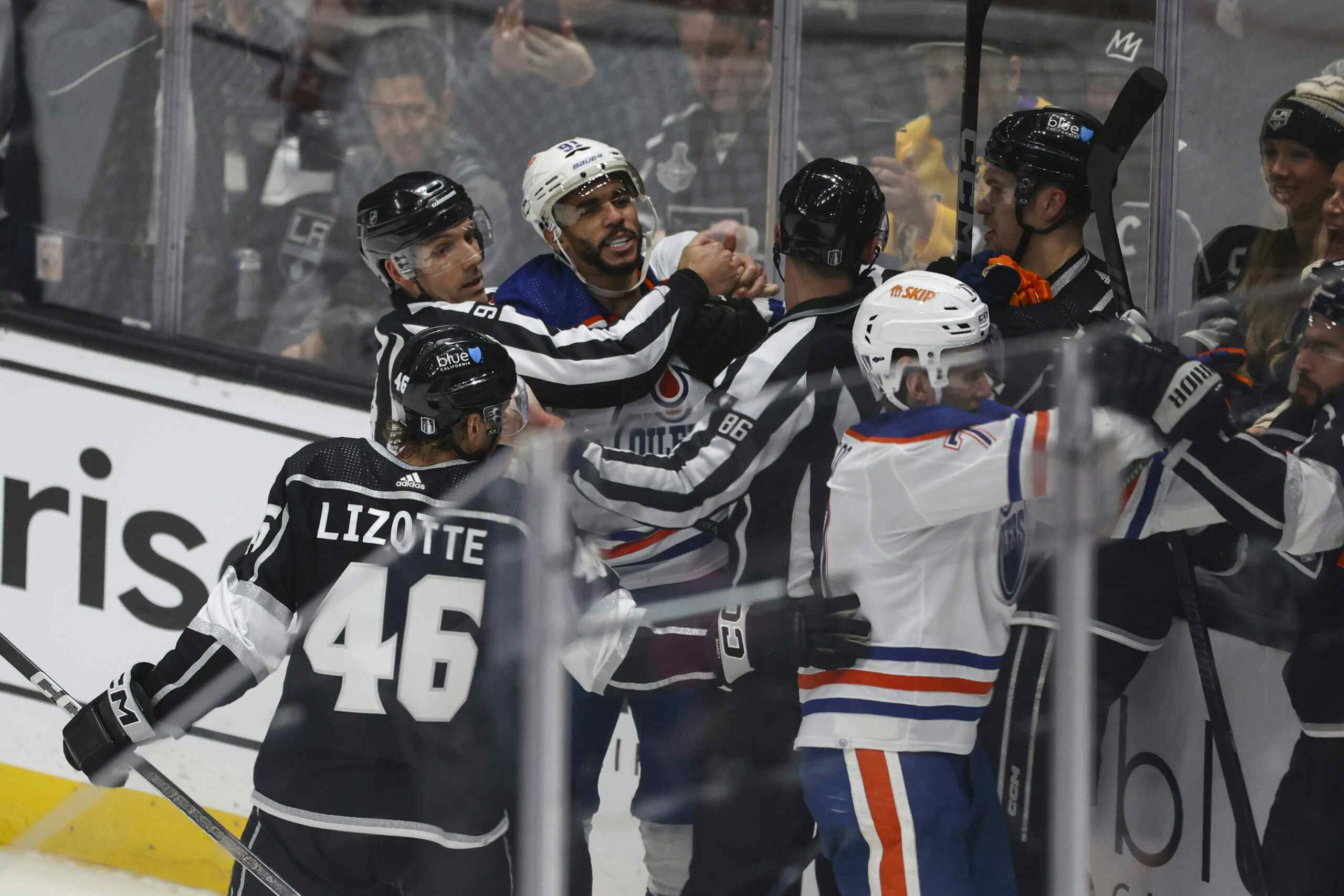Monday Mailbag – October 12th
By baggedmilk
8 years ago
Happy Thanksgiving Monday to everyone that got the day off, and my apologies to those of you who didn’t. Unfortunately, while most of us are pounding back Thanksgiving leftovers sans pants you’re sitting at work looking for ways to kill time. Allow the Mailbag to dust off a few minutes of company time and get you closer to going home. As always, I need questions for the Mailbag so email me at baggedmilk@oilersnation.com or hit me up on Twitter at @jsbmbaggedmilk. Enough of me – let’s learn something.

1) Craig Smallwood asks – What’s worse in your opinion: signing a player to bad contract or not signing a player to a good one and letting him walk? Do you have an example?
Jeanshorts:
To use the Oilers as an example, I would say that not signing Jeff Petry to even, like a two year contract and then shipping him to the Canadiens was a way bigger mistake than signing Nikita Nikitin. Nikitin is now buried in the minors, Petry is playing in Montreal’s top four, and the Oilers’ blue line is still a huge cause for concern. While Nikitin’s contract is taking up valuable cap space, his spot on the roster was freed up for Griffin Reinhart or Eric Gryba, or however you want to look at it. And while the Oilers filled Petry’s spot with Andrej Sekera, imagine a defense corps with BOTH OF THEM?
As we’ve seen, even the dumbest of contracts can be moved (David Clarkson), hell, CHRIS PRONGER was traded this summer, and he hasn’t stepped on an NHL rink since 2011! You can find ways to work around contract mistakes; it’s much harder to replace good players.
Robin Brownlee:
Signing a player to a bad contract, especially if it’s for big dollars over a long term. Aside from overpaying for one player, teams can create problems for themselves when it comes to acquiring other players if they commit too much term and money to the wrong guy.
Jonathan Willis:
It depends in each case on degree. So, for example, letting Martin St. Louis walk for nothing because he’s little is a devastating move; letting Jeff Petry go for very little is less devastating. Alternately, signing Nikita Nikitin to a two-year deal is bad, but signing David Clarkson (as the Oilers almost did) long-term for more money is far, far worse. In terms of the impact on the team, I’d say bringing a player in on a crippling contract is one of the worst things you can do. On the other hand, it’s sometimes more justifiable than letting a good player go – because there’s no reason for a team familiar with the individual not to realize what they have.
Lowetide:
I think Jeff Petry is an example of NOT signing a player to a good contract. They could have gotten him at a good number back in the Tambi era but kept kicking the can down the road. For the life of me I have no idea what the hell Petry ever did to the Oilers.
Jason Gregor:
Signing player to a bad contract. Hinders you for years. Nikitin hurts Oilers and it was made worse by not signing Petry.
Jason Strudwick:
Good question. It’s like a riddle. I think a bad contract. First off I must say as a former player I never get too upset with bad contracts. Too often we blame the player for not living up to the money and the GM doesn’t get his fair share of the abuse.
Baggedmilk:
Getting stuck with a bad contract is way worse than not signing a player. Look at what LA is going through with Mike Richards. They’re going to be paying that thing off until the end of time. Bad contracts can lead to missing out on players, and thus are the reigning champions of awful.

2) Vetinari asks – By the time you get this question, the regular season should be underway. What has McLellan done to prepare this team through the preseason and the opening week that was different than his predecessors and will it lead to a more effective team in 2015/16?
Jeanshorts:
I’m not entirely sure, and I don’t think we’ll really have a good grasp on the actual changes/progress of this team until at least a month in. However from what I’ve read the practices that McLellan runs are night and day compared to basically every coach before him since MacT. The pace, the teaching, the battle drills, everything so far seems to indicate this will be a much different team going forward.
Robin Brownlee:
McLellan is very succinct in not only outlining his expectations but explaining them. He’s a very good teacher. A more effective team? I can’t imagine being concise will lead to a less effective team, but that’s up to the players.
Jonathan Willis:
Beyond the basics (preseason lineups being more NHL-quality right out of the gate) I can’t answer this question. I don’t attend practice, don’t see the differences between Quinn and Renney and Krueger and Eakins and McLellan.
Lowetide:
As I write this, the Oilers are on the verge of the season opener (Calgary lost in the BEST possible way!). I ‘think’ he has everyone buying in, seems the forwards are coming down lower in support and they’re trying to build something together. McLellan has also kept expectations low and acknowledged there will be hard times.
Jason Gregor:
I think he has them buying into being more supportive on the ice. They don’t play as far apart and give each other easier outlet passes. And in the offensive zone, playing closer has them in better positions and they’ve made it more difficult for teams to breakout. The team has many other things to work on, but so far that is the biggest improvement.
Jason Strudwick:
It is no secret that the Oilers were not playing at a quick enough pace in practice and that carried over to games. One of my best coaches, Don Hay, said, “If you want players to compete in games they need to have competitive practices”. I totally agree with that statement. You can’t kill the guys, they need rest as well, but the tempo needs to be set.
Baggedmilk:
I think they look like they’re better prepared to play the game. How many times have we watched the Oilers have horrible starts to games because they weren’t ready? Todd McLellan seems to be very good at communicating the game plan and it already appears to be paying off. It’s crazy that the bar has been set that low, but here we are.

3) Ham and Bun asks – If the league were to expand 31or 32 teams, does the possible talent dilution increase or decrease the chances of seeing 100+ point scorers?
Jeanshorts:
Judging by the amount of teams that are carrying three goalies at the moment, and/or looking to get rid of a mediocre one, I would say the chances would increase. I can just imagine the Las Vegas Mastercard Bandits Brought To You By Verizon® running a tandem of like Ray Emery and Richard Bachman, and having Keith Aulie and Sergei Conchar as their top pairing. There would be entire lines of guys who are ‘good in the room’ that the stats people would have to create a new form of Corsi just to track how bad they are. Connor McDavid would score 65 points against that team alone. I CAN’T WAIT!
Robin Brownlee:
Increase them. Teams, particularly those in the same division/conference will have an opportunity to pad their stats, at least in the short term, against teams made up of castaways and marginal players.
Jonathan Willis:
I’ll say it increases it. The quality at the top end of the league is just as good but now you’ve added 12 more defencemen and four more goalies at the bottom rung league-wide, making it slightly easy to score goals.
Lowetide:
Increase it by a significant margin. There aren’t enough defensemen to go around as it is.
Jason Gregor:
Maybe for a year, but won’t last since the new teams focus on defence. I suspect we will see a 100-point player this year, but with more teams I think it makes game more defensive in long run, because you can find guys who can check much easier than finding guys who can produce consistently.
Jason Strudwick:
The talent has never been higher in the NHL and more is on the way! We are seeing less scoring in the NHL because of all this talent.There are very few easy shifts in the league. Every one can skate and take away speed and space.
Baggedmilk:
You would think so, right? Adding 50 players who would otherwise not be playing (expansion lotteries aside) would water down to the talent pool. I mean, wouldn’t you want to see Connor McDavid ripping apart a top pairing of 63 year old Sergei Gonchar and Mark Fraser? I would.

4) Darrick H. asks – Do you think coaches challenges are a positive or negative for the NHL? It seems to me that they will slow down the pace of the game.
Jeanshorts:
I think it’ll be positive. I honestly can’t see how the “pace of the game” as it were can get any slower, in that it seems like there is a penalty called every two seconds in some games and there’s commercial break every four minutes. I’d gladly sit there for three minutes while the refs get a call right, rather than have a blown call deciding the fate of a game, or a playoff birth, or worst case scenario a Stanley Cup win. I’m sure it’ll take some getting used to at first but by this time next year we’ll be wondering why it took so long to institute.
Robin Brownlee:
Positive. The pace of the game is determined by the play between whistles, not by how long it takes to play the game.
Jonathan Willis:
I’ll want to see them in action for a while before I comment on this. Right now I lean towards them being a positive because the decline in speed seems likely to be negligible, but we’ll have to see what happens.
Lowetide:
Early signs are pretty good. As a fan of a team that gets screwed on calls often, I welcome it.
Jason Gregor:
Don’t see it slowing down pace. There won’t be a flurry of them. Most will happen after goals, which will just extend the stoppage a bit. My hope is they don’t take too much time looking at the video. If done quickly it shouldn’t be a hassle.
Jason Strudwick:
I am all for it. The speed of the game is so high it gives the refs a chance to get it right.
Baggedmilk:
I think the coach’s challenges will take a little bit of time to get used to, but the NHL will refine the process and it will get more efficient as we go along. The most important thing is that they get the call right as quickly as possible. Coach’s challenges are already proving to be effective and I think it’s a good rule add-in by the NHL.

5) Brett B. asks – What do you think about Raffi Torres’ 41 game suspension? Yes he is a repeat offender but that seems like a very long penalty.
Jeanshorts:
I think it was completely fair. It’s not just that Torres is a repeat offender, he’s a repeat offender FOR THE SAME THING! If he had been previously suspended for like a stick swinging incident and leaving the bench, THEN followed it up with a hit to the head suspension, I could see the argument of 41 games being a little overkill. But when you’re suspended for TWENTY ONE games for a hit to the head, then come back two years later and do literally the same thing, there needs to be a jump in the punishment. We’re one more of these hits away from Torres being banned from the NHL for life. I think it will just naturally happen, as he’s proven himself to be more of a liability to his team than anything at this point, but it’s pretty clear the guy just hasn’t learned.
Robin Brownlee:
But what? How many opportunities do you think a player should get before the league lowers the boom? Check Raffi’s rap sheet and tell me with a straight face he’s hard done by. If I was the big boss man of the NHL, I’d be a three strikes guy. Get suspended for three head shots and your days in the league are over. Enjoy the KHL, blockhead.
Jonathan Willis:
I’m in favour of it. Given what we know now about concussions and the long-term effects of blows to the head, head-hunting has to stop. Torres does it all the time; throwing the book at him is a logical response.
Lowetide:
Raffi used to be one of my favorite players but he deserves the penalty. Completely unnecessary move and he is the last guy on the planet who was going to get away with it. Dumbass move.
Jason Gregor:
You can’t hit guys in the head. It was a direct head shot. Torres needs to alter how he plays. It was harsh, but if you don’t send a strong message nothing will change.
Jason Strudwick:
I would have been fine with longer. He needs to figure it out.
Baggedmilk:
Remember when ol’ Raffi completely turned a playoff series around with a hit not unlike the one that just got him suspended? The Oilers were playing the Sharks and Torres completely killed Milan Michalek. He was out, lights off. Torres’ hit kickstarted that series. Maybe he can’t let that go? He needs to let it go. The league has changed, man!
Being completely hung up on that one time he reinvigorated his team with a hit is the only reason that I can come up with for why Raffi Torres can’t stop head hunting. The guy is an annual offender, and the NHL has had enough. I think Raffi got what he had coming. Adapt and overcome or pack your bags for Europe, my friend.
Recent articles from baggedmilk

